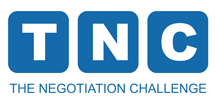Asking questions in negotiation refers to the deliberate use of inquiries to gather information, clarify positions, understand interests, and uncover underlying needs or concerns from the other party. Questions play a crucial role in the negotiation process as they help negotiators gain insights into the other party’s perspective, priorities, and motivations.
Key aspects of asking questions in negotiation include:
- Information Gathering: Questions allow negotiators to collect relevant information about the other party’s needs, preferences, constraints, and expectations.
- Active Listening: By asking thoughtful questions and attentively listening to the responses, negotiators demonstrate that they are genuinely interested in understanding the other party’s viewpoint.
- Clarification: Questions help clarify ambiguous or vague statements, ensuring that both parties have a shared understanding of the issues under discussion.
- Uncovering Interests: Skillful questioning can uncover the underlying interests and motivations of the other party, which may not be evident from their initial positions.
- Building Rapport: Asking questions fosters a sense of engagement and rapport between negotiators, contributing to a more open and collaborative negotiation atmosphere.
- Problem-Solving: Questions can guide the negotiation towards problem-solving by encouraging both parties to explore potential solutions and options.
- Challenging Assumptions: Thoughtful questions can challenge assumptions and biases, helping negotiators reevaluate their positions and consider alternative viewpoints.
- Overcoming Impasses: In cases of deadlock or disagreements, asking strategic questions can prompt the other party to reevaluate their position and open new avenues for compromise.
- Empathy and Understanding: By asking empathetic questions, negotiators can demonstrate their understanding of the other party’s needs and emotions, which can foster trust and cooperation.
- Avoiding Misunderstandings: Asking questions to seek clarification can prevent misunderstandings and misinterpretations that might arise during the negotiation process.
Asking questions in negotiation is a fundamental communication skill used to gather information, uncover interests, and understand the other party’s perspective. Different types of questions serve various purposes and help negotiators navigate the negotiation process effectively. Here are examples of various question types used in negotiation:
Open-Ended Questions:
- Example: “How do you envision the collaboration between our companies moving forward?”
- Purpose: Open-ended questions encourage the other party to share detailed information and provide a broader perspective on their interests and needs.
Closed-Ended Questions:
- Example: “Have you finalized your budget for this project?”
- Purpose: Closed-ended questions are useful for obtaining specific information or confirming facts in a straightforward manner.
Clarifying Questions:
- Example: “Could you please clarify the terms of your proposal regarding the payment schedule?”
- Purpose: Clarifying questions seek to eliminate ambiguity and ensure a clear understanding of the other party’s proposals or statements.
Reflective Questions:
- Example: “It seems like quality is a crucial consideration for your team. Is that accurate?”
- Purpose: Reflective questions help to summarize or paraphrase the other party’s statements, showing that you are actively listening and seeking to understand their perspective.
Assumptive Questions:
- Example: “Given your focus on sustainability, would a renewable energy source be a preferred option?”
- Purpose: Assumptive questions suggest possible assumptions based on the information available, encouraging the other party to confirm or correct them.
Empathetic Questions:
- Example: “How do you feel about the proposed changes to the contract?”
- Purpose: Empathetic questions show genuine interest in the other party’s emotions and concerns, fostering a sense of trust and understanding.
Socratic Questions:
- Example: “What are the potential consequences of proceeding with the current timeline?”
- Purpose: Socratic questions prompt the other party to think critically about their positions, helping them explore the implications of their choices.
Hypothetical Questions:
- Example: “If we were to increase the order quantity, would you be willing to offer a volume discount?”
- Purpose: Hypothetical questions explore potential scenarios and options without committing to a specific course of action.
Contingency Questions:
- Example: “If we encounter delays in the production process, how would that impact the delivery timeline?”
- Purpose: Contingency questions anticipate potential challenges and their effects, encouraging the other party to consider fallback plans.
Leading Questions:
- Example: “Wouldn’t it be more cost-effective to use our manufacturing facility for production?”
- Purpose: Leading questions subtly guide the other party towards a desired response or viewpoint, but should be used with care to avoid manipulation.
By using various types of questions strategically, negotiators can gather valuable information, clarify positions, and foster constructive dialogue, ultimately enhancing the likelihood of reaching mutually beneficial agreements.
When asking questions in negotiation, it’s important to strike a balance between gathering information and avoiding intrusive or aggressive questioning that may come across as interrogative. Open-ended questions are often more effective in eliciting detailed responses and encouraging the other party to share their thoughts and concerns openly. Additionally, being an active listener and showing genuine interest in the other party’s responses can enhance the effectiveness of asking questions in negotiation.
